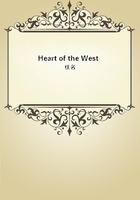We will admit that it might be the duty of the Parliament after punishing the most guilty of his creatures, after abolishing the inquisitorial tribunals which had been the instruments of his tyranny, after reversing the unjust sentences of his victims to pause in its course. The concessions which had been made were great, the evil of civil war obvious, the advantages even of victory doubtful. The former errors of the King might be imputed to youth, to the pressure of circumstances, to the influence of evil counsel, to the undefined state of the law. We firmly believe that if, even at this eleventh hour, Charles had acted fairly towards his people, if he had even acted fairly towards his own partisans, the House of Commons would have given him a fair chance of retrieving the public confidence. Such was the opinion of Clarendon. He distinctly states that the fury of opposition had abated, that a reaction had begun to take place, that the majority of those who had taken part against the King were desirous of an honourable and complete reconciliation and that the more violent or, as it soon appeared, the more judicious members of the popular party were fast declining in credit. The Remonstrance had been carried with great difficulty. The uncompromising antagonists of the court such as Cromwell, had begun to talk of selling their estates and leaving England. The event soon showed that they were the only men who really understood how much inhumanity and fraud lay hid under the constitutional language and gracious demeanour of the King.
The attempt to seize the five members was undoubtedly the real cause of the war. From that moment, the loyal confidence with which most of the popular party were beginning to regard the King was turned into hatred and incurable suspicion. From that moment, the Parliament was compelled to surround itself with defensive arms. From that moment, the city assumed the appearance of a garrison. From that moment, in the phrase of Clarendon, the carriage of Hampden became fiercer, that he drew the sword and threw away the scabbard. For, from that moment, it must have been evident to every impartial observer, that, in the midst of professions, oaths, and smiles, the tyrant was constantly looking forward to an absolute sway, and to a bloody revenge.
The advocates of Charles have very dexterously contrived to conceal from their readers the real nature of this transaction.
By making concessions apparently candid and ample, they elude the great accusation. They allow that the measure was weak and even frantic, an absurd caprice of Lord Digby, absurdly adopted by the King. And thus they save their client from the full penalty of his transgression, by entering a plea of guilty to the minor offence. To us his conduct appears at this day as at the time it appeared to the Parliament and the city. We think it by no means so foolish as it pleases his friends to represent it, and far more wicked.
In the first place, the transaction was illegal from beginning to end. The impeachment was illegal. The process was illegal. The service was illegal. If Charles wished to prosecute the five members for treason, a bill against them should have been sent to a grand jury. That a commoner cannot be tried for high treason by the Lords at the suit of the Crown, is part of the very alphabet of our law. That no man can be arrested by the King in person is equally clear. This was an established maxim of our jurisprudence even in the time of Edward the Fourth. "A subject," said Chief Justice Markham to that Prince, "may arrest for treason: the King cannot; for, if the arrest be illegal, the party has no remedy against the King."
The time at which Charles took his step also deserves consideration. We have already said that the ardour which the Parliament had displayed at the time of its first meeting had considerably abated, that the leading opponents of the court were desponding, and that their followers were in general inclined to milder and more temperate measures than those which had hitherto been pursued. In every country, and in none more than in England, there is a disposition to take the part of those who are unmercifully run down, and who seem destitute of all means of defence. Every man who has observed the ebb and flow of public feeling in our own time will easily recall examples to illustrate this remark. An English statesman ought to pay assiduous worship to Nemesis, to be most apprehensive of ruin when he is at the height of power and popularity, and to dread his enemy most when most completely prostrated. The fate of the Coalition Ministry in 1784 is perhaps the strongest instance in our history of the operation of this principle. A few weeks turned the ablest and most extended Ministry that ever existed into a feeble Opposition, and raised a King who was talking of retiring to Hanover to a height of power which none of his predecessors had enjoyed since the Revolution. A crisis of this description was evidently approaching in 1642. At such a crisis, a Prince of a really honest and generous nature, who had erred, who had seen his error, who had regretted the lost affections of his people, who rejoiced in the dawning hope of regaining them, would be peculiarly careful to take no step which could give occasion of offence, even to the unreasonable. On the other hand, a tyrant, whose whole life was a lie, who hated the Constitution the more because he had been compelled to feign respect for it, and to whom his own honour and the love of his people were as nothing, would select such a crisis for some appalling violation of the law, for some stroke which might remove the chiefs of an Opposition, and intimidate the herd. This Charles attempted. He missed his blow; but so narrowly, that it would have been mere madness in those at whom it was aimed to trust him again.















